37+ Sample Weekly Meal Plans
-
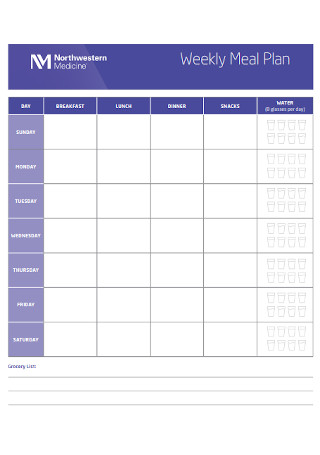
Sample Weekly Meal Plan
download now -
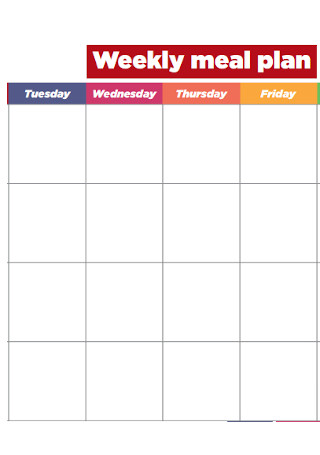
College Weekly Meal Plan
download now -
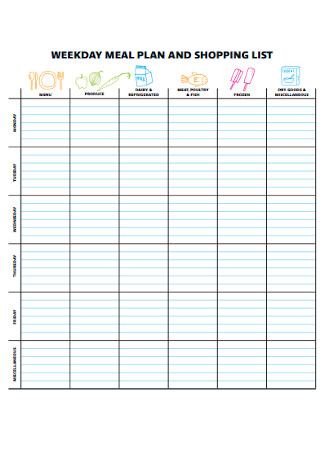
Weekly Meal Plan and Shopping List
download now -
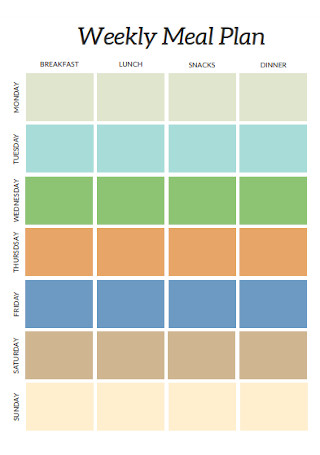
Standard Weekly Meal Plan
download now -
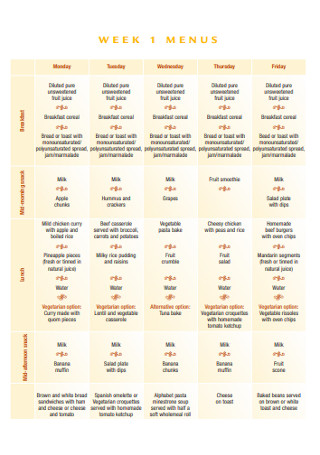
Three Week Meal Plan
download now -
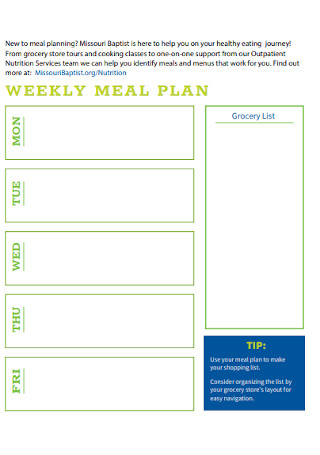
Simple Weekly Meal Plan
download now -
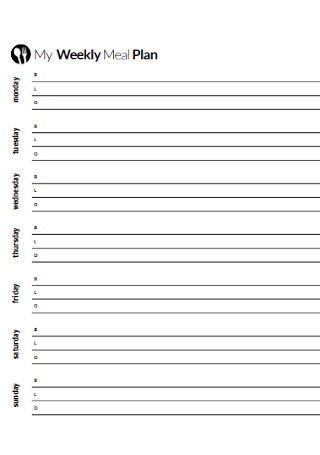
My Weekly Meal Plan
download now -
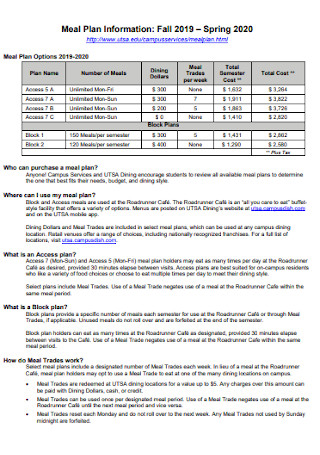
Campus Weekly Meal Plan Template
download now -
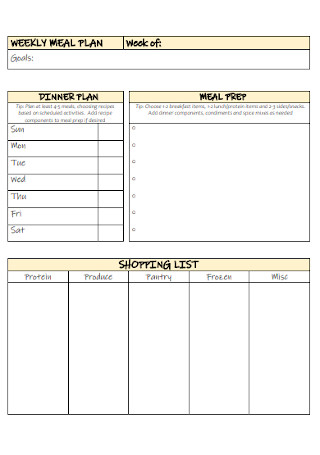
Weekly Dinner Meal Plan
download now -
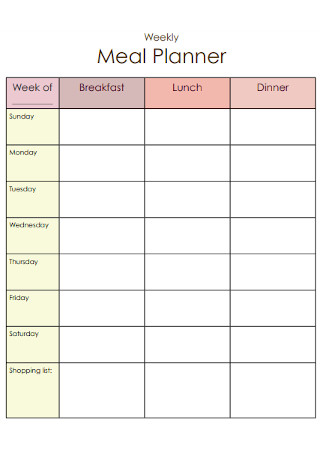
Sample Weekly Meal Planner
download now -
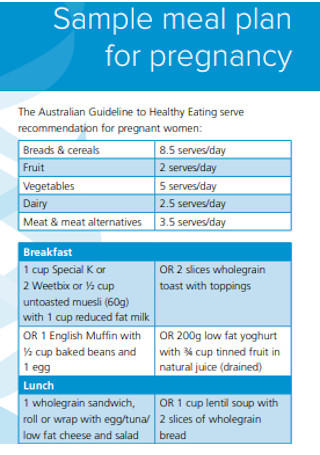
SampleWeekly Meal Plan for Pregnancy
download now -
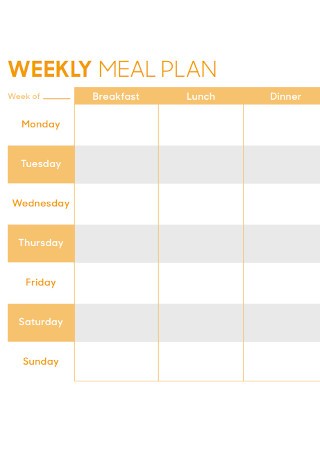
Formal Weekly Meal Plan
download now -
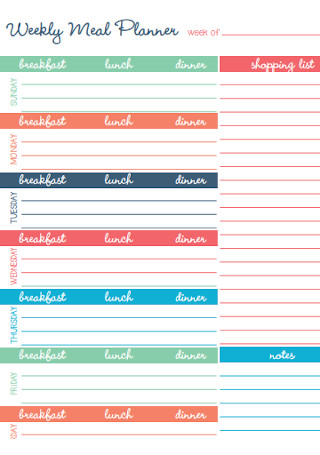
Weekly Meal Planner Format
download now -
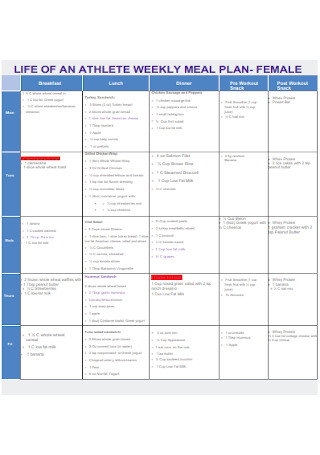
Life of an Athlete Weekly Meal Plan
download now -
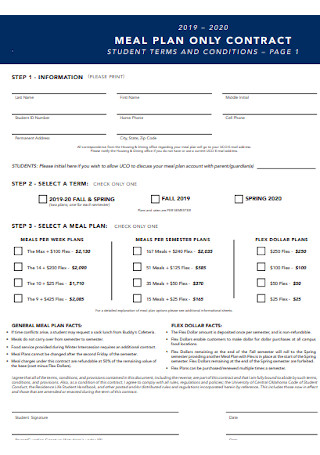
Weekly Meal Plan Contract
download now -
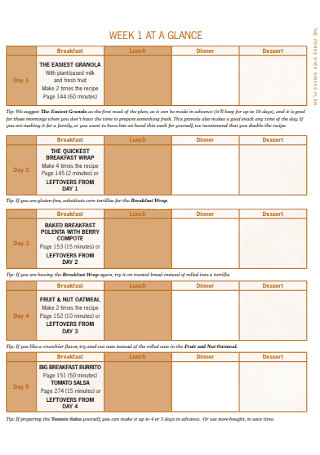
Four Weeks Meal Plan
download now -
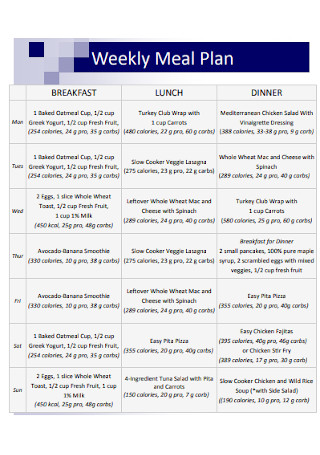
Hospital Weekly Meal Planner
download now -
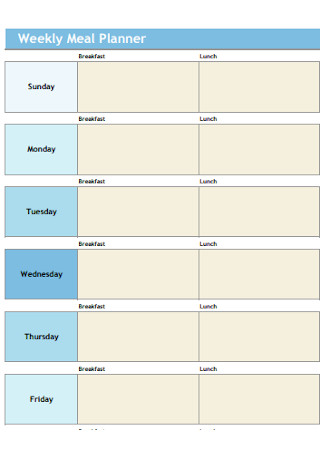
Basic Weekly Meal Plan
download now -
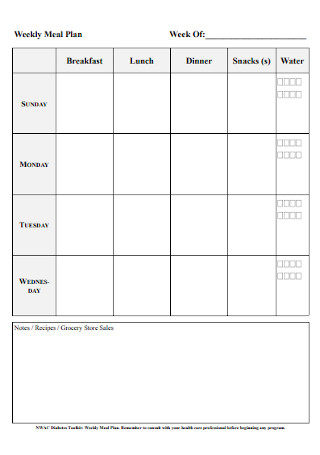
Weekly Meal Plan Format
download now -
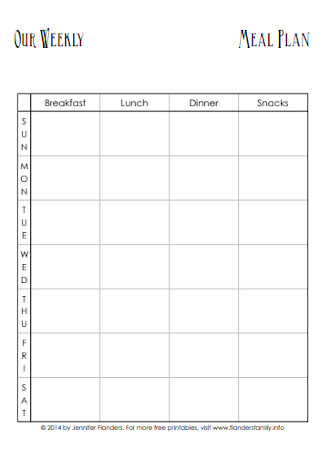
Our Weekly Meal Plan
download now -
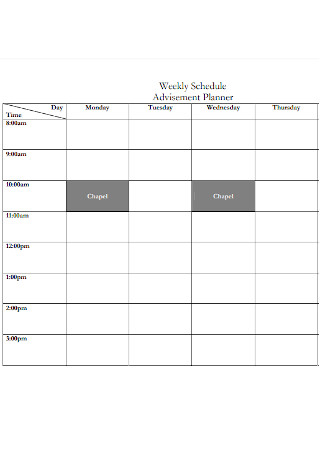
Weekly Meal Schedule Plan
download now -
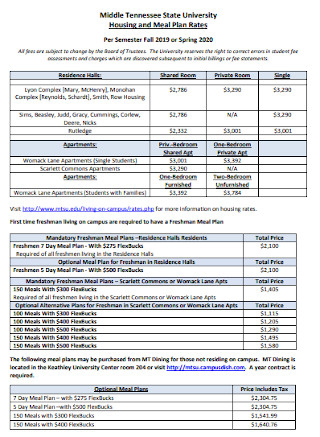
Weekly Housing Meal Plan
download now -
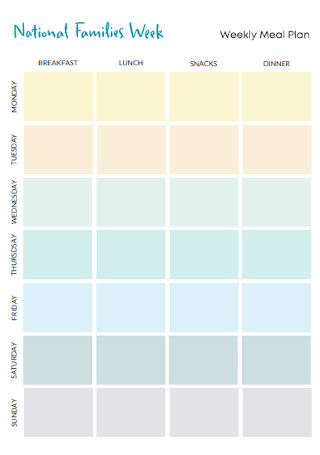
Families Weekly Meal Plan
download now -
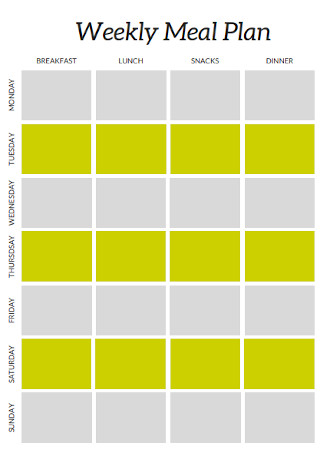
Weekly Lunch Meal Plan
download now -
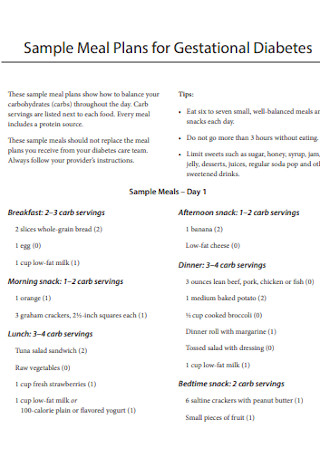
Weekly Meal Plans for Gestational Diabetes
download now -
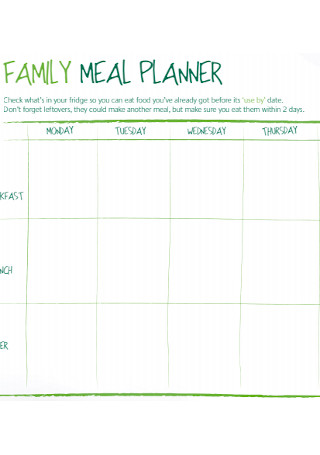
Family Weekly Meal Planer
download now -
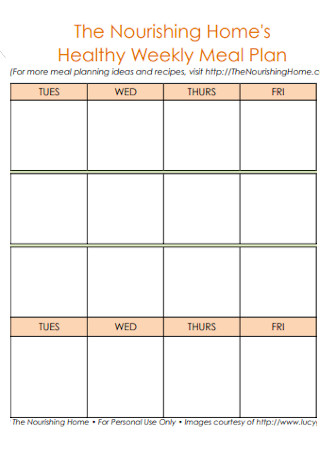
Home Healthy Weekly Meal Plan
download now -
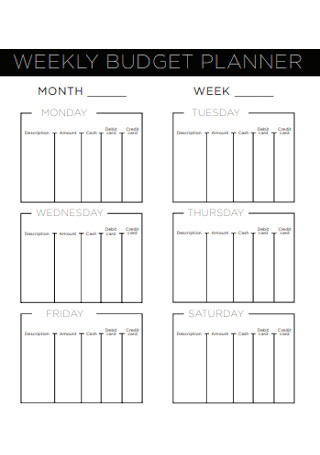
Weekly Meal Budget Plan
download now -
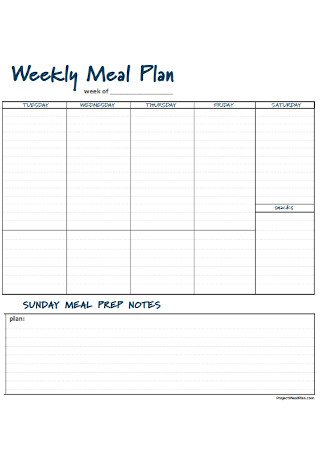
Weekly Meal Plan Example
download now -
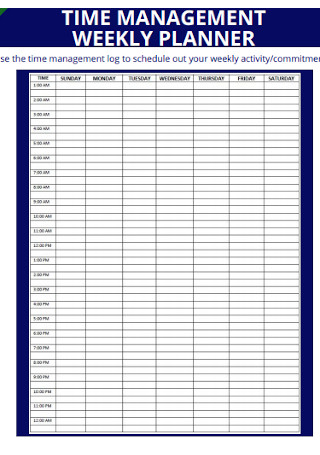
Weekly Management Meal Plan
download now -
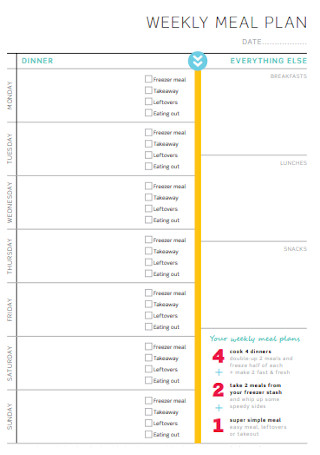
Weekly Meal Cook Plan
download now -

Weekly Meal Plan and Shopping List
download now -
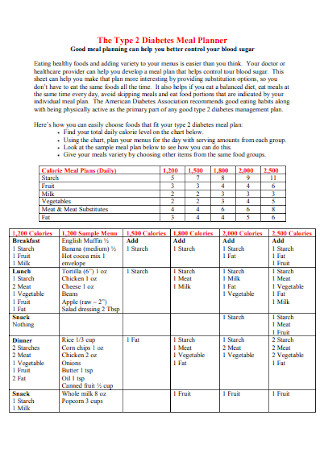
Diabetes Weekly Meal Plan
download now -
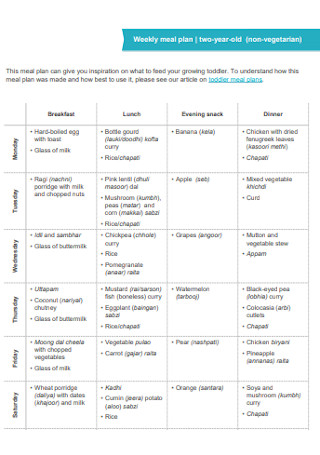
Non-Vegetarian Weekly Meal Plan
download now -
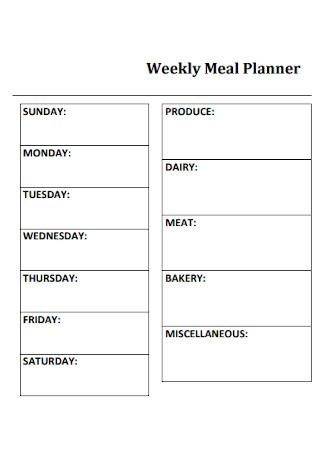
Weekly Kitchen Meal Planner
download now -
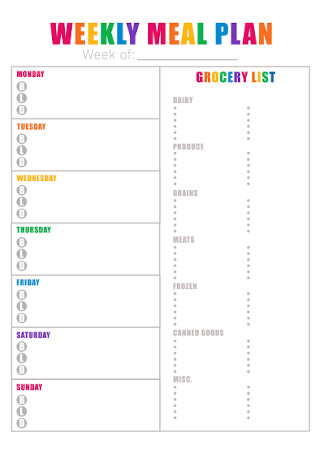
Weekly Grocery Meal Plan
download now -
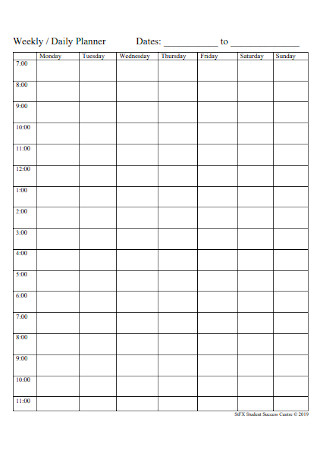
Daily and Weekly Meal Plan
download now -
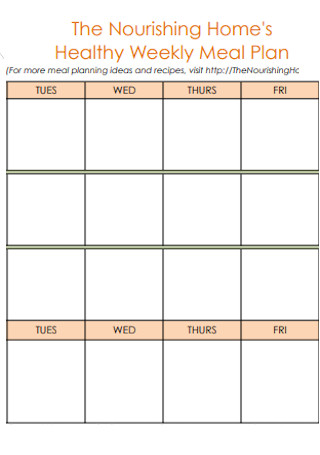
Healthy Weekly Meal Plan
download now
FREE Weekly Meal Plan s to Download
37+ Sample Weekly Meal Plans
What Is a Weekly Meal Plan?
Benefits of a Weekly Meal Plan
Tips in Preparing a Meal Plan
How to Create a Weekly Meal Plan
FAQs
Is it possible to live solely on fruit?
What if you only consume 500 calories every day?
What if you only ate one meal every day?
What Is a Weekly Meal Plan?
Diet refers to the quantity of food consumed by a person or other organism. Diet frequently connotes the usage of a specified nutritional intake for health or weight loss. Even though humans are omnivores, each culture and individual has specific culinary preferences or taboos. Statistics show that a total of 57% of participants stated that they plan meals regularly. Meal planning entails selecting foods that will aid in the management of your diabetes. It also entails understanding how much and when to consume such items. You may plan your meals in various ways to ensure that you’re receiving the proper foods in the right proportions every day. You might use one of the approaches for diabetic meal planning that many people use as a guide.
Benefits of a Weekly Meal Plan
Meal planning is the straightforward act of allocating time each week to plan any number of your meals. Create a plan for you or your family. Plan an evening out in addition to a healthy diet. Plan every snack and meal, or at the very least your lunches, to avoid eating out during the week. It makes no difference what you intend to do as long as you have considered it. The point is not to begin each meal from scratch. There are numerous reasons why meal planning and preparation are advantageous, but they all fall into three categories. Several of its advantages include the following:
Tips in Preparing a Meal Plan
Meal planning and preparation are invaluable skills to have in your toolkit for health and wellness. A well-thought-out meal plan can assist you in improving the quality of your diet or achieving a specific health goal while also saving your time and money. Here are a few tips for successful meal planning.
Start small.
It can be intimidating to establish a meal plan if you have never done it before or in a long time. Making a habit of meal planning is similar to making any other significant adjustment in your life. Starting small and gradually increasing your confidence is a fantastic strategy to ensure that your new habit sticks. Begin by preparing a few meals for the coming week. You’ll eventually figure out which planning tactics work best for you, and you may gradually expand your schedule by adding extra meals as needed.
Consider the various food groups.
Whether you’re planning meals for a week, a month, or just a few days, it’s risky to combine foods from each food group in your plan. The healthiest meal plan prioritizes whole foods such as fruits, vegetables, legumes, whole grains, lean protein, and healthy fats while avoiding refined grains, added sugars, and excessive salt. Consider each of these food groups as you peruse your favorite recipes. Make a point of filling in any gaps if any of them are missing.
Make a plan.
Any good meal plan requires a high level of organization. Everything from food budget planning, grocery shopping, and meal preparation will be a snap with an organized kitchen, pantry, and refrigerator since you’ll know what you have on hand and where your equipment and materials are. Ensure that it is a system that works for you.
Invest in high-quality storage containers.
One of the essential meal preparation equipment is food storage containers. If you’re currently working with a closet full of mismatched containers with missing lids, meal preparation can be a real pain. Investing in high-quality containers is well worth your effort and money. Consider the intended usage of each container before making a purchase. Choose freezer-safe, microwave-safe, or dishwasher-safe containers if you plan to freeze, microwave, or clean them. Microwave-safe glass containers are environmentally beneficial. They can be found in stores and on the internet. It’s also helpful to have a selection of sizes for various foods.
Make time constantly.
Making meal planning a priority is the ideal approach to incorporate it into your daily routine. It can be beneficial to schedule a block of time dedicated simply to planning regularly. Meal planning can take as little as 10–15 minutes each week for some people. You may need a few hours if your plan includes pre-preparation of some food products or pre-portioning meals and snacks. Regardless of your strategy, the key to success is to set aside time and stick to it.
Make a location where you can save and store recipes.
Avoid unnecessary frustration associated with trying to remember recipes by storing them in a convenient location that you can access at any time. This may be in a digital file on your computer, tablet, smartphone, or a physical location in your home. Having a designated space for your recipes saves time and alleviates some of the stress associated with meal planning.
Ask for assistance.
It can be challenging to stay motivated to create a new meal each week, but you don’t have to go it alone. If you’re in charge of meal planning and preparation for a large family, don’t be hesitant to solicit advice from family members. If you’re primarily cooking for yourself, ask your pals what they’re preparing or look for ideas online through social media or food blogs.
How to Create a Weekly Meal Plan
Meal planning can assist you in achieving your goals, whether financial, health care, organizational, or time-related. Preparing meal plans tailored to your lifestyle and food preferences will help you save money and avoid waste. Do not be concerned if the concept of meal planning conjures up images of spreadsheets, personalized day planners, or anything else that makes you want to curl up in a ball and scream. The following steps will help you make a weekly meal plan.
Step 1: Check your schedule.
It would help if you first determined when you will cook before planning the meals you will prepare. This will assist you in deciding which recipe style to use for your food plan. Examine your schedule and figure out not only when you’ll have time to cook but also when you’ll have the stamina to do it. You may build a meal plan that works for you, whether you have one day per week or time every night. Set a note of a few open slots in your schedule, block them off, and make a date with yourself to cook. Take the time to rewrite it down in your planner or on your computer calendar. You’re more likely to complete it if it’s truly scheduled!
Step 2: Fill in the days of the week on your weekly food planning grid.
Create a weekly meal planning grid in the second step. This is just a week’s calendar with boxes for each meal event, such as breakfast, lunch, snack, and dinner. You can download some free How to Create a Weekly Meal Plan templates, including the fantastic template designs that you can use every week and a 12-page guide on getting started. Do what works for you, though. Plan for the days between if you know you’ll be heading to the supermarket twice a week. The goal of the meal plan is to plan until the next time you go to the store so you don’t have to scramble for supper every night or worry about what you’ll bring to work for lunch the next day.
Step 3: Fill in any days you’ll be eating out.
It’s now time to fill out your week. However, take a look at your work calendar and note any meals you anticipate having out so you can plan accordingly. Are you planning a lunch with family or a work dinner? It’s not a big deal; plug it in and plan accordingly. If you typically bring leftover dinner for lunch the following day, prepare simple lunches for the days following dining out.
Step 4: Make a list of any other items you’ll need around the house.
We like to combine our grocery and household shopping into one big night, and since most grocery stores now carry most household goods, it’s crucial to plan for those items as well. List your household items and add anything you need from the store after preparing your meals. Always double-check your toothpaste, toilet paper, cleaning supplies, what you need for the house, and your meal planning to-do list.
Step 5: Shop according to your list and then post it in the kitchen for daily reference.
Then, with your shopping list in hand, it’s time to go shopping! Bring your shopping list with you to the store and cross off items as you add them to your cart. Assume you’re visiting several stores; at the first, cross items off your list and carry the list with you to the next. When you return home from the supermarket, post your grocery list on the refrigerator. It’s pointless to create a meal plan if you’re not going to stick to it, so post it somewhere you’ll see it daily to eliminate any uncertainty about what’s for supper.
FAQs
Is it possible to live solely on fruit?
Meat is devoid of fiber, as well as essential vitamins and nutrients. Fruits and vegetables may contain vitamins, but they lack adequate fat and protein even when consumed in large quantities. The body doesn’t require as much as you might believe in staying alive, but you’ll be sorry if you don’t take them.
What if you only consume 500 calories every day?
Vitamin and mineral shortages are the most severe risks linked with a 500-calorie diet. Vitamin and mineral shortages can result in a variety of health issues. Most people will not meet their vitamin and mineral needs if they consume less than 1200 calories each day.
What if you only ate one meal every day?
Unless carefully planned, eating one meal a day is unlikely to provide your body with the calories and nutrients it requires to survive. Choosing to eat over a more extended time may help you in increasing your nutrient intake. If you decide to attempt eating one meal a day, don’t make it a habit to do it seven days a week.
Meal planning and weekly preparation are excellent approaches to making better food choices while also saving time and money. Though it may appear daunting at first, there are some tactics you can use to build a long-term meal planning habit that fits your lifestyle.
